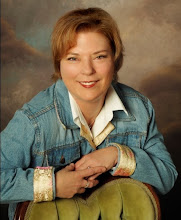Cancer. It is a common and deadly genetic disease. There is no positive spin on this. The statistics for breast cancer are scary. These are just a few from the website of BreastCancer.org:
About 1 in 8 women in the United States will be diagnosed with invasive breast cancer.
In 2016, there are more than 2.8 million women with a history of breast cancer in the U.S. This includes women currently being treated and women who have finished treatment.The most significant risk factors for breast cancer are gender (being a woman) and age (growing older).
The website, Susan G. Komen (ww5.komen.org) states that 1.7 million new cases of cancer were diagnosed in 2012 worldwide. That means if you are a woman, you will undoubtedly have cancer or know someone who does.
If, like me, you have gone through the challenges of chemotherapy with someone you love, you know the heartbreak watching the effects and the feeling of being powerless to do anything to help.
There is an adapted excerpt from Grief Is a Journey, by Kenneth J Doka, Phd., on the Huffingtonpost.com website titled “The 3 Kinds of Grief Nobody Talks About”. It is well worth the read. I especially resonated with the second one, "The Loss of a Person We Haven’t Yet Lost", and its most profound statement about “Anticipatory grief”, the sense of loss and grieving for a loved one diagnosed with a life-threatening disease. It is not just one loss, but multiple losses you experience as you lose a loved one, and grieve for each loss.
The worst of all for me, I do not want the one going through her ordeal to comfort me, make me feel better about this horrifying situation that is her reality, not mine. So, I offer conversation as a diversion and leave room between words for deeper dialogue. I have learned that I cannot alter the course of cancer, though I have researched the scientific and New Age alternative approaches to cancer and tendered possible solutions, the maybe of hope, the if only…
I have learned from my friends to let it go; that just being there is sometimes all they want, a gab-fest or maybe have me do a physical chore that they no longer can do for themselves. I have learned to take this time as another gift of friendship. I have learned that memories are painful but comforting, that one does not forget a loved one.
I have learned that the best I can do is what I can do: get a yearly mammogram and skin check-up and physical exam; cut down on the carbohydrates, eat more vegetables and fruit, exercise regularly, and wear sunscreen. And donate to cancer research.



No comments:
Post a Comment